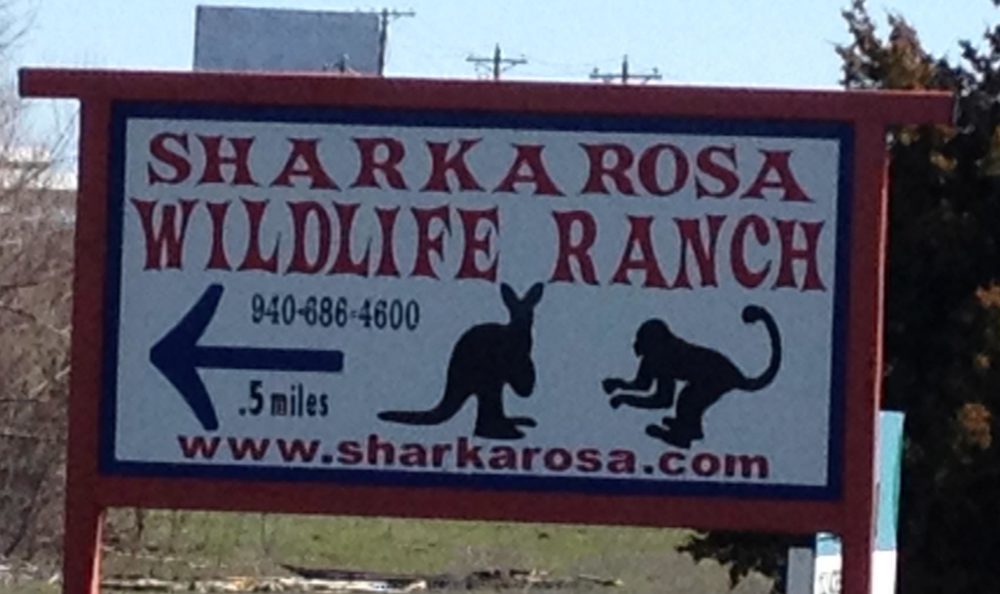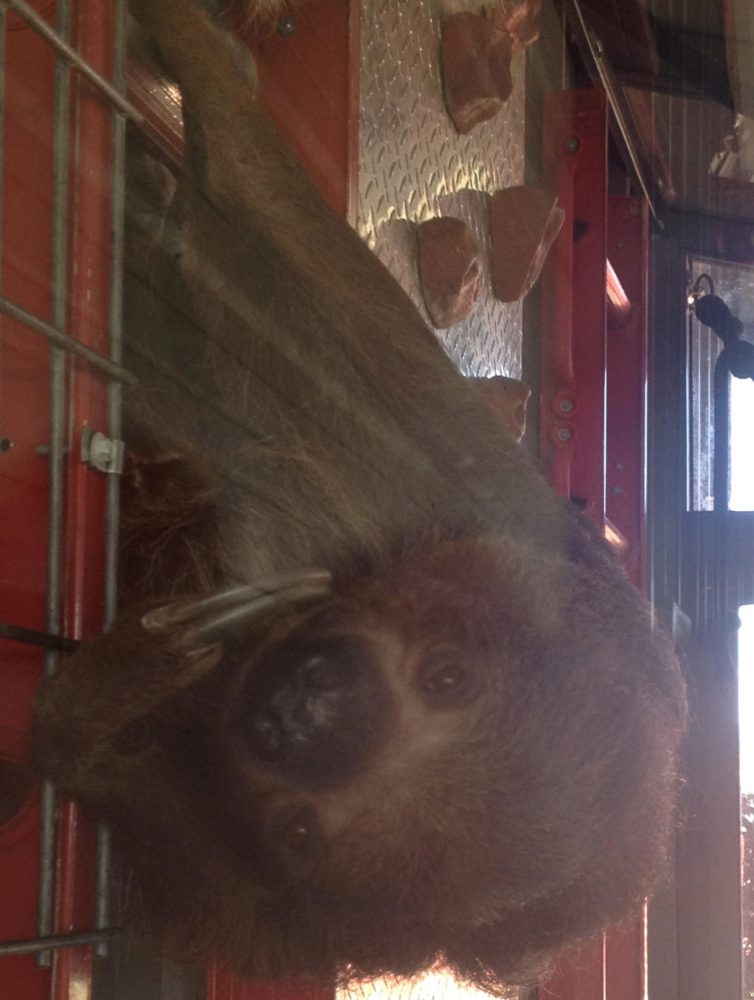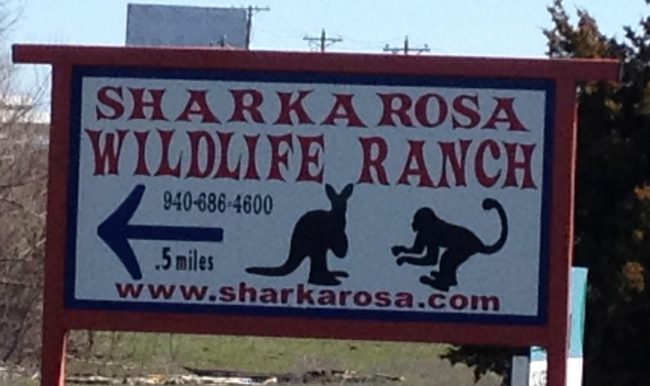
Running about in the freedom of their custom-built, 7,000-square-foot habitat, it is hard to believe that these brother and sister bears are not in the wild. At just two weeks old, Bailey and Barnaby were lucky enough to be rescued by the Sharkarosa Wildlife Ranch in Pilot Point from an impending death nearly two years ago.
Bailey and Barnaby are joined by 130 other animals. From the exotic lemurs to the Texas native white-tailed deer, Sharkarosa bills itself as a safe haven for wildlife in distress.
Scott Edwards, owner of Sharkarosa Wildlife Ranch, together with his team, rescued Bailey and Barnaby when authorities discovered that the bears were being held and used illegally.
“We were afraid they’d get killed so we opted to keep them here,” said Edwards.
Texas currently has more exotic animals than any other place in the world, living everywhere from hunting ranches to confined cages in backyards. Though many people find the ownership of exotic animals disturbing and inhumane, it is places such as Sharkarosa Wildlife Ranch that have taken the plight of these innocent animals and turned it into an educational experience.
Sharkarosa Wildlife Ranch is a non-profit facility licensed by the USDA and home to more than 100 native, exotic, and endangered animals. The educational facility offers a unique experience to interact with exotic animals and learn about how to help.
“Realistically, what we can do is work with private institutions as well as city and government institutions like ourselves who want to teach people about the environment and the future generations on how to preserve it,” said Edwards.
Sharkarosa has set out to educate younger generations on the importance of conservation and ecology. As Edwards points out, the problem is that humans have destroyed the environment so much and the ecology with all the hunting and factories and cutting down the forests that there’s not enough places for the animals to live.
“The animals don’t win any way you slice it. The animals have the same problem the American Indian had. We’re taking everything from them and not giving them anything in return,” said Edwards.
Jean Kazez, a professor in the philosophy division at SMU, who writes about animal rights, said she is worried about both the environment and the number of exotic animals in captivity.
“Texas ranchers are disturbing local ecosystems by adding thousands of exotic animals to them. Animals are being grouped together who don’t naturally belong together,” she said.
On a recent Sunday at Sharkarosa, the sound of barking Lemurs native to Madagascar and the casual grazing of zebras provided the setting. At any one time, the ranch houses roughly 130 animals and is constantly evolving and adding new exhibits.
Just an hour north of Dallas, Sharkarosa officialsy say they provide a hands-on educational experience through field trips and private tours, complete with a safari tram and bucket train rides. The specially designed activities allow for an intimate interaction between visitors and the animals, allowing visitors to pet and feed the animals up-close.
As the third most smuggled contraband in the United States, exotic animals continue to fall into the hands of those looking to use the animals in business ventures or to sell them. The animals are often abused and mistreated.
“Exotic animals can be and are just as deadly as a gun and should require proper training and certification to own them,” said Sara Stuart, director of operations at Sharkarosa.
The people who are illegally smuggling these animals do not know how to properly care for them, often forcing them to live in unfit conditions. This was the situation with the bears Bailey and Barnaby, who were being used illegally for photography. The people that had them did not have the proper permits to have them or do what they were doing with them.
“The bears would’ve been put down and there’s nothing they did to deserve losing the chance to roam the wild,” said Edwards.
Laws regarding ownership of exotic animals as pets vary from state to state. The current law in Texas states that a person can legally possess an exotic animal if the person has obtained the proper license or certificate of registration. The license is issued by an animal registration agency and there are so specifications as to who can apply for this license.
In addition to caring for the animals and educating the local community, Edwards and his coworkers at Sharkarosa have gone to great lengths to make an impact on people around the country.
“We’ve tried to be really innovative in helping the sanctuaries raise money to help these animals,” said Edwards.
With appearances on television shows, including Discovery Channel’s popular program Dirty Jobs, Sharkarosa has developed a pilot for its own television series in hopes of gaining further support for its facility.
“The television show is intended to bring awareness to the public as to the plight of these animals. People would see that and want to support the animals,” said Edwards.
Open to the public on Saturdays from March through November, Sharkarosa is also available for small and large party rentals. Find out more information by visiting its website at www.sharkarosa.com or by calling (940) 686-4600.










